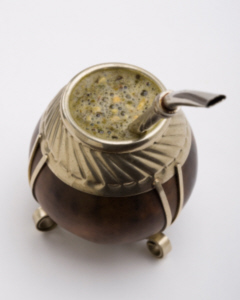.gif) VIARTIS
|
||||||||||||
|
PARKINSON'S DISEASE NEWS |
||||||||||||
|
|
Parkinson's Disease News covers all significant new research, reports, books, and resources concerning Parkinson's Disease. Articles are chosen on the basis of their medical significance or potential interest. Our overwhelming priority is the facts, regardless of whether they contradict prevailing views or vested interests. Analysis and further information are provided either to explain the background or implications, or to balance misleading claims. If you notice errors or inadequacies, or dispute what is written, or want to propose articles, please e-mail [email protected].
14th July 2015 - New research YERBA MATE REDUCES THE LIKELIHOOD OF PARKINSON'S DISEASE
Yerba Mate has been found to reduce the likelihood of Parkinson's Disease by more than a third. Yerba Mate is a very common beverage in some countries of South America. It is a herb, that is dried and chopped, before pouring hot water over it to make a drink. For more information go to : Yerba Mate
Although the researchers detail the reduced likelihood of Parkinson's Disease because of drinking yerba mate, the reduced likelihood of Parkinson's Disease is even greater when drinking tea, and even more so when drinking coffee. The effect appears to be directly related to the caffeine intake. Caffeine is a naturally occurring adenosine antagonist. The Adenosine antagonist drugs Tozadenant, Preladenant, and Istradefylline are presently being assessed for their use in the treatment of Parkinson's Disease. Reference : Journal of Neurological Science [2015] Jun 24 [Epub ahead of print] (E.M.Gatto, C.Melcon, V.L.Parisi, L.Bartoloni, C.D.Gonzalez) Complete abstract For more news go to Parkinson's Disease News
|
|
||||||||||
.gif) |
||||||||||||
| ©2006-2015 Viartis | ||||||||||||
| 2015-07-19 18:29:09 | ||||||||||||
| [email protected] | ||||||||||||










 E-MAIL NOTIFICATION : If you would like to be
notified by e-mail when any new articles are added to Parkinson's Disease News, please merely
e-mail
E-MAIL NOTIFICATION : If you would like to be
notified by e-mail when any new articles are added to Parkinson's Disease News, please merely
e-mail
